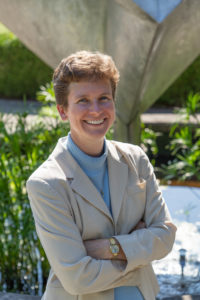
Attending to Self
Covid-19 is not the first crisis through which I’ve taught. The past year has been one of intense personal crisis for me, and I’ve had to keep teaching right through it. Now we’re all in personal crisis. Everyone is doing a new thing in higher education. No one was prepared for this, we’re all learning how to do it, and we’re not doing it in a vacuum. Many of us are suddenly in crisis; people we know and love may be out of jobs or ill with Covid-19, or suffering in some other way. I have learned an important thing in this past year: When in personal crisis and needing to keep teaching, I have to change my expectations of myself.
When I am in crisis, I will not be everything I think I should be as a teacher. (Even when I’m not in crisis, I will not always be everything I think I should be as a teacher.) In crisis, though, I have to let go of those expectations and get realistic. I will not have energy to meet with every student about his or her paper drafts like I usually manage to do. I will not have energy to create an imaginative new assignment or even, perhaps, a new exam. I will not have energy to have lunch with students every week to get to know them better. My energy will be expended by caring for myself—making sure I eat properly, see supportive friends, and work through my own stuff. There will only be so much energy left after those basic things. I have to make energy choices.
Am I caring for myself before my students? Yes. In the same way that airline attendants insist we put the oxygen masks on ourselves before we put them on our children. If I am taking care of myself, I am some good to my students. If I ignore myself in order to do the things I think I should be doing, I will be no good to my students because I will be exhausted inside of a month.
Start by checking in with yourself. Reflect on where you are and what you need. What are you thinking and feeling? What do you need for your physical health? What do you need for your mental and emotional health? What structures will enable you to feel somewhat stable and keep moving? Who do you need to help you? Once you’ve established where you are and what you need in this moment (and these things may change day-to-day), take steps to put these things in place. Get yourself set. Then look at your syllabus. What are the 2-3 things you most want your students to get from class? What on your syllabus will accomplish those? What can you cut and still make sure students receive those things? If you’re reading this blog, you’re a good teacher. Because you are a good teacher, even if you cut some things, your students will still have a good experience and learn what you want them to learn.
Readers of this blog are professors who care about our students. We want to do well by them, to teach and mentor for their lives. This means we probably have exceptionally high standards for our teaching. We are probably inclined to forge ahead trying to make this new learning environment work for our students or even to make sure they have what they need in their personal experience of the crisis. But if we forget to attend to ourselves, we’ll pass out from exhaustion before we have a chance to help our students.
Leave a Reply